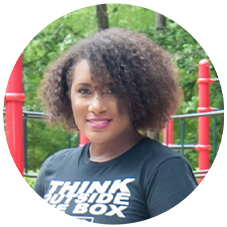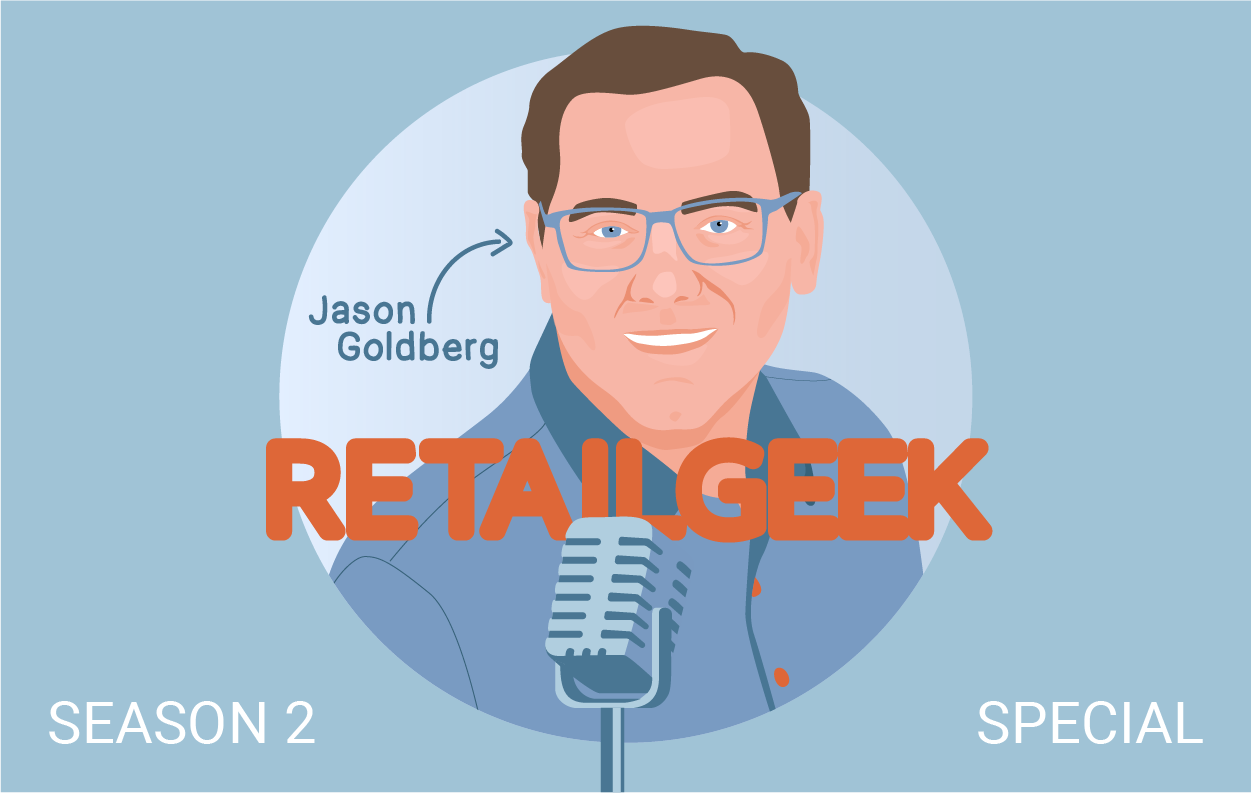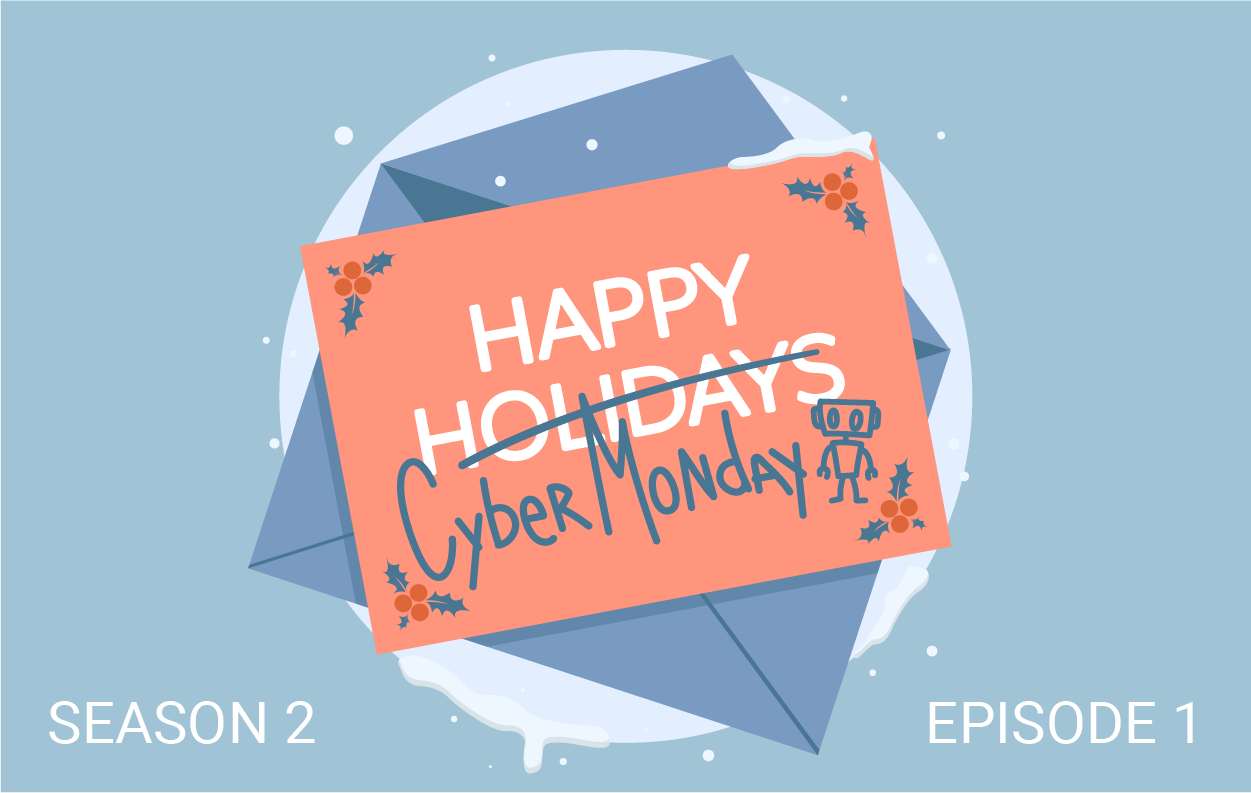
Small business owners reflect
How entrepreneurship changed me
MAKING IT WORK PODCAST
Season 2 | Episode 9
In a time characterized by constant change, we’re reminded that we’re always evolving as human beings. Certain life choices or big events can shape a person’s life – and who better to testify to this than small business owners.
From believing in an idea to making it a reality, these five small business owners are no strangers to change. They share how entrepreneurship has impacted their lives.
Does the reward of a new venture outweigh the risk? And how do you grow as a person in the process?
Listen now
SHOW NOTES
How entrepreneurship changes your life
Running your own business is often compared to a rollercoaster: an unpredictable sequence of ups and downs, taken at breakneck speed. But even as you step trembling back onto the ground and head to the end of the line for another ride, it’s good to take a moment to reflect on what you’ve experienced – and to consider what the next ride is going to look like.
Because exhilarating as it is, nobody wants the end result to be a nasty case of whiplash.
First, the whys
Quaestuary (noun): a person who does business solely for the purpose of profit. And for many people, that would seem to be the primary reason for business. But it’s a viewpoint that is rapidly becoming as archaic as the word that represents it. Today, entrepreneurship is as much about creating opportunities as anything else.
“Of course, you want to make money,” says Back of the Yards Coffee Co. founder Mayra Hernandez, “but if your mentality is always on the money, I don't think that that is healthy or sustainable for your mental health and for the communities that you're serving. I think once you start to shift your mind about what it means to be an entrepreneur and think about creating opportunities for others to also share in that growth, then you're creating something sustainable.”
For others, entrepreneurship is simply a part of their identity – such as Kat Samardzija, founder of Locker Lifestyle. “Being an entrepreneur is definitely in my blood. So I guess it's always been part of my identity.” That could be why she’s become a go-to person for business advice. “I feel so honored that they think of me as problem solving and having a trait of knowing how to manage time and prioritization. And having a certain network of people in my circle is something that's always been very important.” It’s something that goes two ways. “It’s helped me evolve as a person.”
Not missing the 9 to 5…
It might be harder for the person in the street to appreciate these benefits, though. It’s one of the reasons why a great many people opt for the classic nine to five model – it means having less control, but also means that the burden of accountability lies on somebody else’s shoulders. Surely entrepreneurs sometimes have a longing for that (relatively) easy life?
SWISCO CEO Paul Pallas wouldn’t know. “I have never had a regular job. I grew up in a family company and the closest thing to a regular job would've been me sweeping the floors when I was 12.” Being the son of the owner allowed him to “…explore the company and figure out what I wanted to do there.” But although he can’t imagine having a regular job working for someone else, “Sometimes I like to fantasize about maybe it would be easier. Maybe I wouldn't have so much pressure on me if someone else was the job and they just told me what to do. But I think I would be bored out of my mind.”
Kat also never had a ‘normal’ job, and the only things that she feels she’s missed out on are the things that could directly help improve her business. “Only in terms of seeing how certain things are run. I wish I knew or had some sort of thing to fall back on or structure that I was aware of, whether it was HR or how to do payroll or the way meetings are set up and expectations for employees.”
Casey Kelley actually did work in a corporate environment before launching Blended Designs, which makes character backpacks featuring persons of color – and used it to her advantage. “I think my corporate background prepared me for the workload because working for yourself, you work a whole lot harder than when you work for corporate. Now, because of the type of company that I worked for and the things that I did within my previous role, I was working long hours.”
“Every single backpack sale determines how much I can eat. When we have slumps, I don't get paid...”
She used that drive to fuel her entrepreneurship, but for reasons that are closer to home. “Every single backpack sale determines how much I can eat. When we have slumps, I don't get paid and everybody else gets paid and all the other bills get paid, but then my home life is impacted.”
…but still missing out
So entrepreneurship doesn’t necessarily mean that you’re missing out on the daily nine to five grind. That doesn’t mean that other hard choices don’t have to be made along the way, however – as Ebun Olaloye, founder of soccer fashion brand, Live Breathe Futbol is quick to point out.
“When your friends are getting married because they've got a job out of college, they've got a few years to save up money, they met a nice girl… you postpone a lot of the things that other people kind of get to do earlier on in their life because you just don't have the resources to do so.” It’s a state of affairs that’s not helped by friends who can’t see the reality of the situation. “The only thing they can say about what I'm doing is, ‘Oh dude, you're crushing it, You're doing amazing.’ They do not see the reality of the business – even if I was to say to them, ‘We're struggling to make payroll this month.’ They absolutely cannot relate to that.”
Kat – who grew up playing sports – is no stranger to those necessary sacrifices. “I missed out on a lot anyways, or couldn't go to certain dances or functions, so that was something that was not really new to me.” Entrepreneurship, then, has been a continuation of that. “My friends wanted to go hang out at a bar, but I actually have to ship all these orders out. That's something that didn't really interest me, because then I'd be tired the next day.” It’s a tough call, but Kat knows where her priorities lie. “I intentionally sacrifice certain social situations or being with certain people in order to make sure that I was prepared for doing things for the business, so that it had my full attention and my full energy.”
Sanity checks
That leads neatly on to the old adage around ‘all work and no play’. And whilst missing out on social activities might be easy for some, it’s tough indeed on others. And it’s not the only factor that can take its toll on an entrepreneur’s mental health.
“It has changed everything about my life,” says Mayra, “and I think a lot of it does have to do with mental health. But I think it has made me a stronger, more confident, and empowered woman.” There’s also a degree of imposter syndrome – something that’s very common in the entrepreneur world. “I don't have a business background. I didn't finish college. I'm a first generation Latinx immigrant. I'm a woman of color. I don't have a rich family.” But Mayra’s success (rightly) speaks for itself, and she’s in touch with that. “It makes me feel good about myself. It makes me feel proud to call myself an entrepreneur.”
It’s also a lonely path to tread though, and that can have a big effect on a person. “That's another thing I guess people don't realize is that, it can be very, very lonely,” says Kat. Her safety net has been bolstered by her network. “I still have these moments of, ‘Oh my gosh, what the heck am I doing? Why am I doing this? I'm tired.’ But then by being with the right mentors and/or other entrepreneur friends, they kind of keep you grounded and realize that a lot of business owners do deal with those feelings. They are normal: honor that, and then move forward.”
The entrepreneurs






Kat Samardzija






Paul Pallas






Mayra Hernandez






Ebun Olaloye






Casey Kelley
Looking back
But would Kat have done anything different? What if she could hop into a time machine and offer words of advice to her earlier self? “I would have told myself to not take things so seriously. Because sometimes I would get so caught up in things that I realize now didn't even matter.” It turns out that she does have some regrets around the social decisions. “I did sacrifice a lot of going out with friends and doing things for the business and I wished that I would have taken advantage of going out a little bit more. I wished I learned sooner that four hours of sleep wasn't gonna work for me.”
Having inherited the family business, Paul’s viewpoint was always going to be a little bit different. But just how different is a little surprising, perhaps. If I knew what I knew today… starting from scratch would've been the way to go. But I was a young kid out of college. I had no business experience. Starting from scratch then would've been pretty tough, because I just didn't know how to do it.” Like Kat, he’s got a yearning for that time machine. “If I had the experiences now and I can go back 10 years.. oh the changes I would make.”
Listen to the episode
More episodes



Ask the expert special: Jason "Retailgeek" Goldberg
It's been a rollercoaster year for retailers. But what exactly has changed? According to consultant Jason Goldberg, not that much – we've just been propelled 10 years into the future.



How the holidays get crazy
From Black Friday to January sales, the holiday period is a peak time for businesses. But what do you need to do to prepare, and how early should you start?